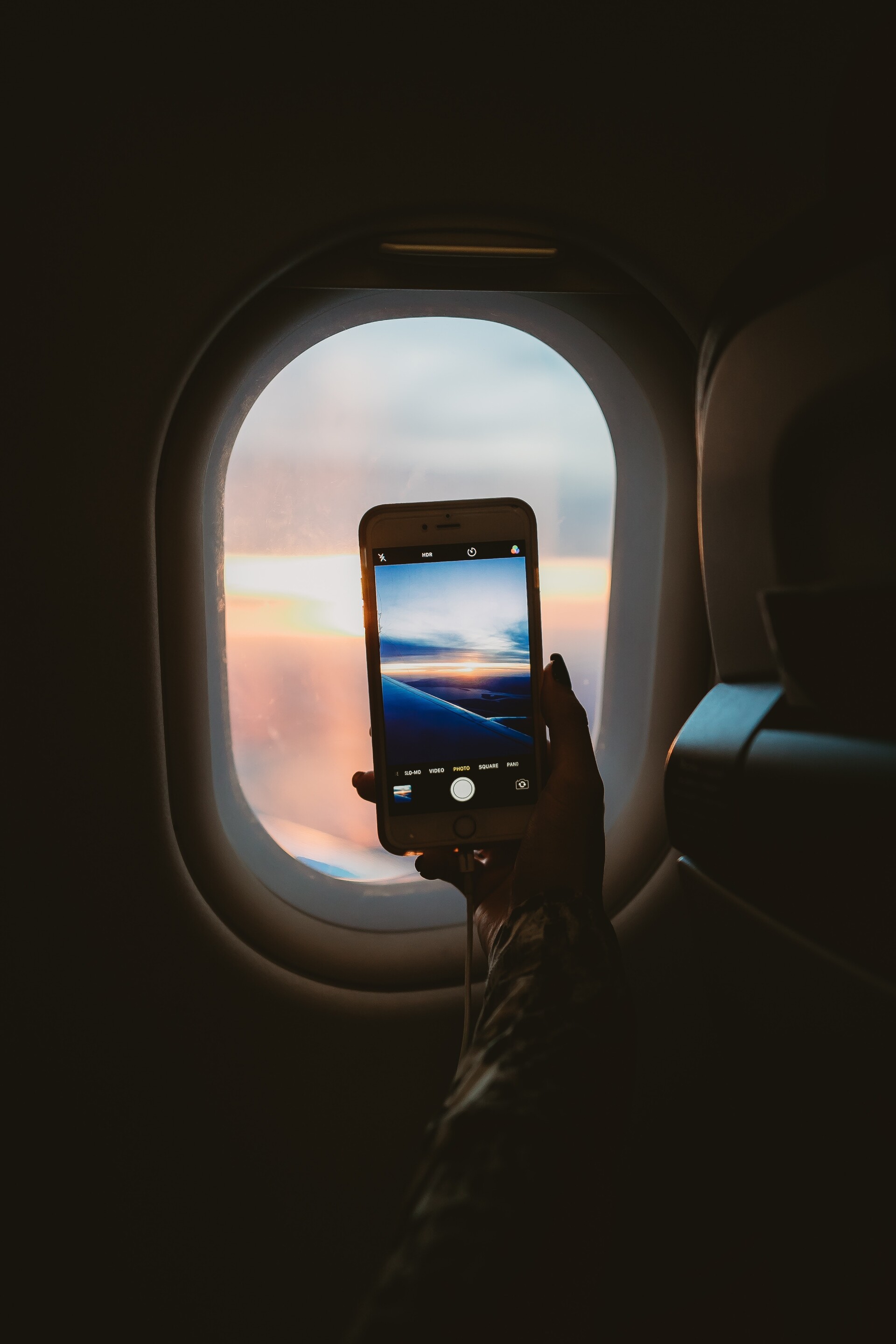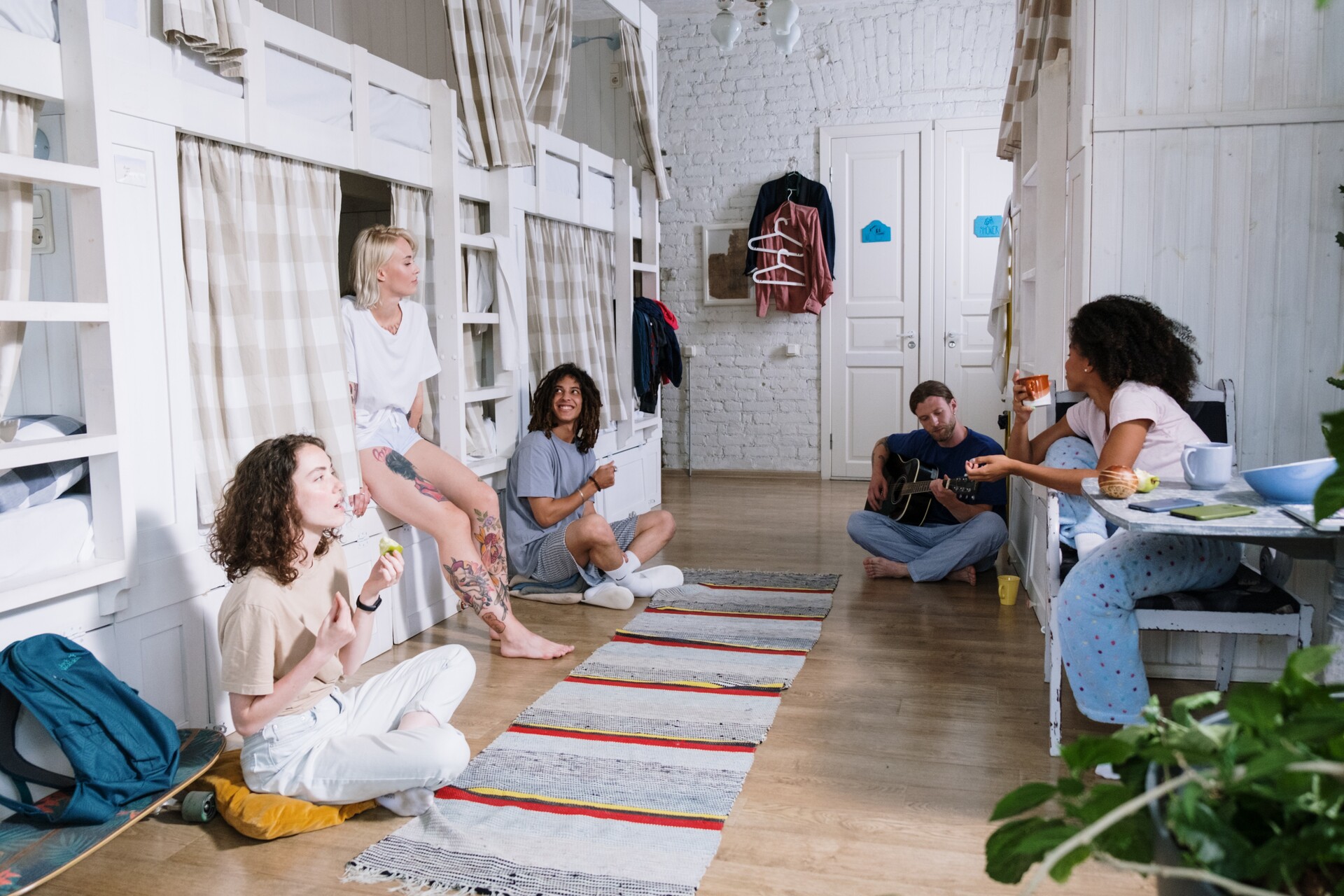Discover the best tips on how to travel cheap in Europe
When I got the mobility grant to study in Bologna for a semester, one of the first things I thought, and that everyone said to me, was that it was going to cost a lot. However, doing the maths on the costs of the flight, accommodation, food, etc., I realised that there wouldn't be very much of the grant left for me to travel, which saddened me a bit. Once in Europe, I managed to travel with my savings, so today I'm giving you tips on how to travel cheap that have worked quite well for me.
Transport for travelling cheap in Europe
Transport is always, or almost always, the most expensive thing. I say "almost always" because you can find really good offers, so you have to take advantage of that to travel cheaper.
Travelling on a budget by plane
Whilst in Bologna, I found really good flight offers with Ryanair to Athens, Madrid and Brussels, through which I got to know these three cities in three separate countries without spending much.

The bad thing about Europe is that it's almost more expensive than Mexico in most places, but flights can be much affordable if you know where to look for good offers. There are many low cost companies, like Ryanair, but there's also Easyjet, Vueling, and many others. I've only travelled with Ryanair, so I can give some opinions on it:
- Each month they release offers for flights in the next month. For example, in September there was a week of discounts for flights in October. You have to take advantage of these offers when they appear so you can plan your trip further in advance.
- The cheapest are when you can't take any more baggage than a small travel bag you can fit underneath the seat of the plane. So during these flights you should travel light so you don't have to pay extra for luggage.
- It's advisable to check-in online 2 days before, so you already have your ticket on your phone or tablet and you just have to go directly to the boarding lounge. Warning: they've told me that in Spain they don't accept the online ticket with foreigners, so it would make sense to take it printed out so you don't have to pay extra in the airport.
- They're usually a bit late, but there's no need to worry or be complacent. It's better to make sure you're in the boarding lounge at the stated time, and if it arrives late, it doesn't matter, you've just got to be patient.
Travelling on a budget by bus
Another way I travelled around a lot was by coach, in particular with Flixbus, an agency that has routes all around Europe and is very cheap. Another cheap bus agency in Italy is Marinobus.
These companies usually have really cheap prices when you buy the tickets in advance. I realised that the prices generally get more and more expensive the closer to the departure date. They also have different prices for every day of the week and for every hour. Nighttime prices and midweek dates are usually cheaper, but it depends. You have to keep in mind the departure and arrival times. While it may be cheaper if you arrive at dawn, you have to make sure that the destination isn't really dangerous, and if there's any doubt it's worth buying a more expensive ticket and arriving at a more decent and less dangerous time.
Some advice for long journeys is to travel at night, so you can save money on a night of accommodation. Arriving early to big and touristy cities is a good idea to avoid crowds. For example, when I went to Rome and my bus arrived at 6 in the morning, I had the chance to see the Trevi Fountain empty, which is impossible later on.
Travelling on a budget by train
Travelling by train is usually more expensive, but not always. For short journeys they're usually around the same price or even cheaper than the coach. If it costs the same as a coach, I would recommend the train because it's generally quicker and definitely shorter.
It was in this way that I managed to travel a lot with Ryanair and Flixbus and, just once or twice, with Trenitalia.
To compare prices between planes, coaches and trains, I recommend you look at this website: Omio
Food when travelling on a budget
Eating out is almost always really expensive, especially in the touristy cities where they raise the restaurant, cafe and bar prices.
What I learnt to do was to take all the food that I could with me (depending on how much I wanted to carry and how long the food would last, obviously). I prepared different things at home and I would take them with me on my trips, so I already had the majority of the food for my trip sorted. This required cooking time and Tupperware to carry the food in. The food that was most convenient for me to take on trips with me was: oranges and apples, biscuits, sandwiches, pasties and pasta, but I'd recommend practically anything that has no problem being crushed and has a more or less long shelf life in good condition.

If I ate all the food that I'd taken with me on my trip while I was travelling, what I'd usually do is go to a supermarket to buy fruit and biscuits for dinner, and simple ingredients to cook something in case my accommodation had a kitchen. The cheapest and simplest thing to cook is pasta or a sandwich.
If there isn't a way of getting to a supermarket or cooking something at the accommodation, you have to look for a restaurant or pub that isn't that expensive. In Europe the cheapest places are generally those that sell kebabs or pizza and you can find one in each city. You can also look on tripadviser or ask locals.
Accommodation when travelling cheap
The cheapest types of accommodation are hostels and Airbnb. For those who want to travel alone and meet new people, the best option is hostels. There are some that have rooms specially for girls or guys, and others that are mixed. Me, as a woman, would genuinely prefer rooms for women when I travel alone, for comfort and precaution.
Choosing Airbnb or Hostel, the most important characteristics that you should have are:
- Good ratings from people who have already stayed here, especially on the points of safety and cleanliness. Comfort is the least important point for me if I'm travelling on a budget.
- That it's in a good location. If you stay near the places you want to visit, you shouldn't have to pay transport or walk much.
- That it has a kitchen and, if the price isn't too high, breakfast is included. This way you can guarantee your eating for cheaper.

On Erasmus you meet people from different places, so if you make friends and they invite you to their house, it's a great idea accepting their invitation, because it means seeing a new place without paying for accommodation, which would save a lot of money. That's why I'd recommend taking a gift to them as a thank you.
Other tips to travel on a budget
Walk as much as you can to save money on transport within the city. Paying one euro or one fifty for each bus or metro ticket is too much. What's more, by walking you can get to know the city more.
If you want to buy souvenirs, I recommend that you don't buy them in the first place you come across, but you should check around first to see if there are different prices around so you can pick the best option. Generally it's cheaper if you buy a few things. There's always the option to haggle. And there's always the option of not buying souvenirs for anyone!
Always carry some extra money for anything, you never know what might be on offer. And always carry the most basic medicines (for headaches, stomach aches, diarrhoea, colds, illnesses you already have) so that you don't have to buy any medicine during the trip.
Be thrifty, but also indulge yourself whenever you can, and before choosing the cheapest, check that it won't do you any harm.
Photo gallery
Content available in other languages
Want to have your own Erasmus blog?
If you are experiencing living abroad, you're an avid traveller or want to promote the city where you live... create your own blog and share your adventures!
I want to create my Erasmus blog! →






Comments (0 comments)